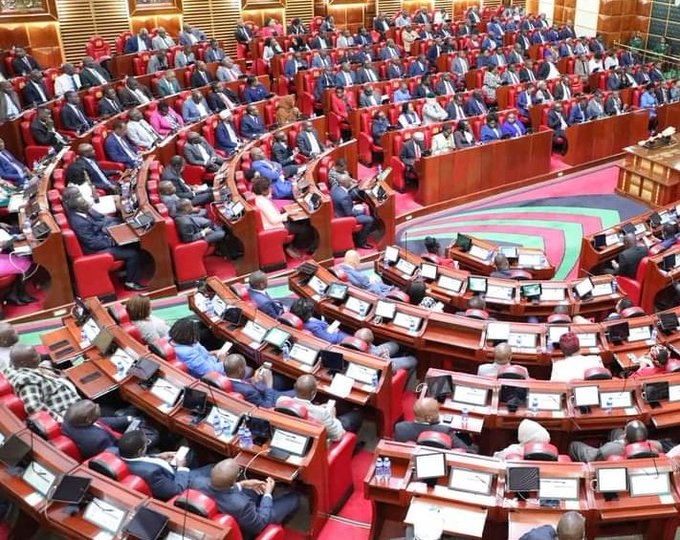The leadership of the Senate and the National Assembly has initiated talks to resolve persistent wrangles and rivalry that have rocked the two houses for years over legislation.
This plan comes days after senators protested the rejection of at least 13 of their bills by Parliament on the grounds that they are money bills. The Senate and the National Assembly have been wrangling since 2013.
Speakers of the bicameral Parliament disclosed to the Star that talks to resolve feuds and streamline the strained relationship are at an advance stage.
“The discussion with the Senate leadership is at an advanced stage and I believe we are almost at the tail end of a solution,” National Assembly Speaker Justin Muturi said on Thursday.
Muturi’s Senate counterpart Kenneth Lusaka confirmed negotiations are ongoing and a number of proposals have been floated to address the conflicts.
They include co-sponsoring legislation by members of the two houses to ensure bills do not ‘die’ in either House.
“If a bill is co-sponsored by the Senate and the National Assembly, then we shall tackle that problem,” Lusaka said.
Muturi said that certain articles of the Constitution that do not have express interpretation have been at the core of the conflicts.
“The problem revolves around the definition of what a money bill is — articles 109 (5), 110 and 114 of the Constitution,” he said.
According to the Constitution, the Senate cannot originate a money bill. However, the two houses have had different interpretations of a money bill, leading to a constant clash.
Article 109 (5) states, “A bill may be introduced by any member or committee of the relevant House of Parliament, but a money bill may be introduced only in the National Assembly in accordance with Article 114.”
Article 104 (3) defines a money bill as one that contains provisions dealing with taxes or imposition of charges on a public fund or the variation or repeal of any of those charges.
A money bill also deals with the appropriation, receipt, custody, investment or issue of public money and raising or guaranteeing of any loan or its repayment.
Last week, senators lamented the rejection of their 13 bills by the National Assembly, the latest being the Pandemic Response and Management Bill, 2020.
The proposed law was drafted by the Senate ad hoc Committee on Covid-19 Situation to provide a legal framework for combating the virus and other pandemics in the future.
“There is nothing more heartbreaking, as a legislator, considering that one of our key mandates is legislation, we feel very bad,” said nominated Senator Sylvia Kasanga, who chairs the committee.
Other bills that have been rejected in the National Assembly after being declared money bills are the National Flag, Emblems and Names (Amendment) Bill, 2017; the County Boundaries Bill, 2017; the County Oversight and Accountability Bill, 2018; and the Determination of the Nature of Bills Bill, 2018.
The National Flag, Emblems and Names (Amendment) Bill sponsored by Senator Mutula Kilonzo Jr sought to allow members of the public to express their patriotism by flying the national flag at their private residences and place of work or business provided this does not undermine the state.
The County Boundaries Bill, 2017, provides a legal framework for resolving disputes arising from county boundaries, while the County Oversight and Accountability Bill proposed a mechanism on how oversight over the county budgets can be carried out.
In June last year, Senator sued the National Assembly for ‘ignoring’ them in the passage of legislation. They challenged at least 15 Acts, which they said had been passed by the National Assembly and signed into law without their input.
Last week, the senators put the House leadership on the spot for planning to withdraw the petition without seeking their consent after it reportedly entered into an agreement with the other House.
















